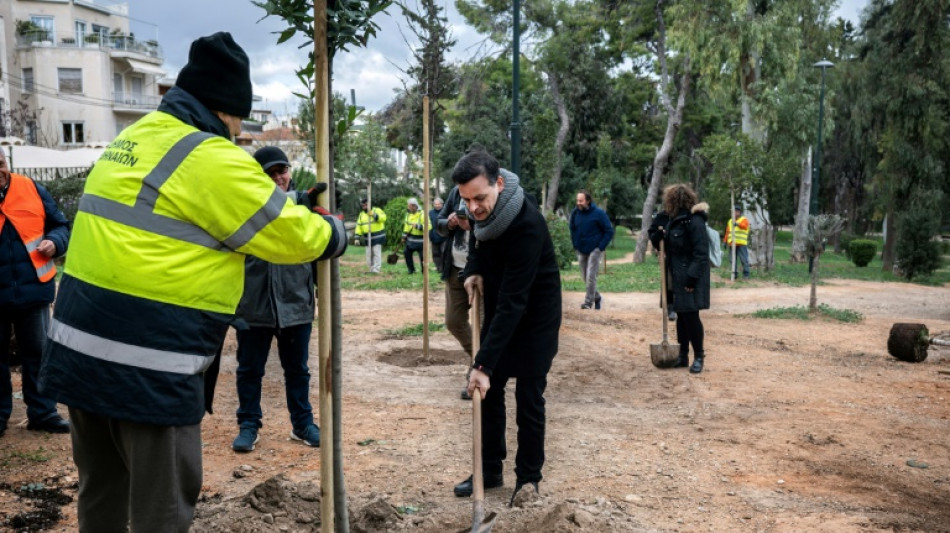

New mayor hopes trees will cool Athens down
Athens' new mayor will plant 25,000 trees over the next five years to try to cool the sprawling Greek capital, he told AFP.
Scorching summer heatwaves can make the city of tightly-packed concrete office and apartment blocks almost unbearable, with temperatures topping 40 degrees Celsius (104 Fahrenheit).
Former energy professor Haris Doukas, who was elected in October, faces a daunting mix of pollution, soaring temperatures and traffic gridlock.
His answer is to plant 5,000 trees a year to create "cool routes" of shade connecting Athens' streets, parks and urban hills.
"High temperatures, pollution and the loss of greenery create conditions where the city centre is unbearable in the summer," Doukas said.
Part of the total includes 3,000 trees at a new sports complex by the Panathinaikos club in the industrial district of Votanikos, slated to be completed in 2026.
Last summer Athens baked through a sustained heatwave that saw temperatures consistently top 40C.
The National Observatory of Athens said July was the warmest on record since it began monitoring data in 1863.
To make matters worse, nearly a quarter of the trees on the mountains surrounding the capital have been lost to forest fires over the past six years, the mayor said.
Last year the EU court of justice condemned Greece for failing to take measures against nitrogen dioxide levels in Athens "systematically" exceeding limits over the past decade.
- 'Scientific' solutions -
"I am here to state scientific findings and fight for solutions," said Doukas, formerly a professor of mechanical engineering at the Athens Polytechnic, specialising in energy policy and management.
Backed by the socialist PASOK party, Doukas caused an upset last year by defeating the incumbent mayor Kostas Bakoyannis, nephew of Prime Minister Kyriakos Mitsotakis, who was widely expected to win a second term.
Athens in the past has toyed with campaigns to encourage residents to install solar panels on their roofs, or plant more greenery on their balconies.
But these are expensive options at a time when many are struggling with rising prices and energy bills, Doukas said.
Instead, he wants to encourage businesses based in the capital to spruce up their buildings.
The city will also put solar panels on municipal edifices such as schools, he said.
"There is limited space, this is a city of cement, but there are a lot of possibilities," Doukas said.
Athens municipality has around 650,000 residents, but some three million people commute in and out of the city centre every day.
Carpooling will be encouraged to cut the city's notorious traffic congestion, the mayor said.
And Doukas said he was also looking at saturation levels of short-term tourism rentals in some neighbourhoods.
"All of this we will look at calmly, in consultation with residents. We want them on our side," he said.
In some areas near the Acropolis, Greece's most-visited site, residents are moving out and even rental platforms are advising visitors to seek accommodation elsewhere, he said.
"Athens must not become a boundless mall," Doukas said. "Excessive touristification creates a problem for tourism itself."
H.Davenport--NG



